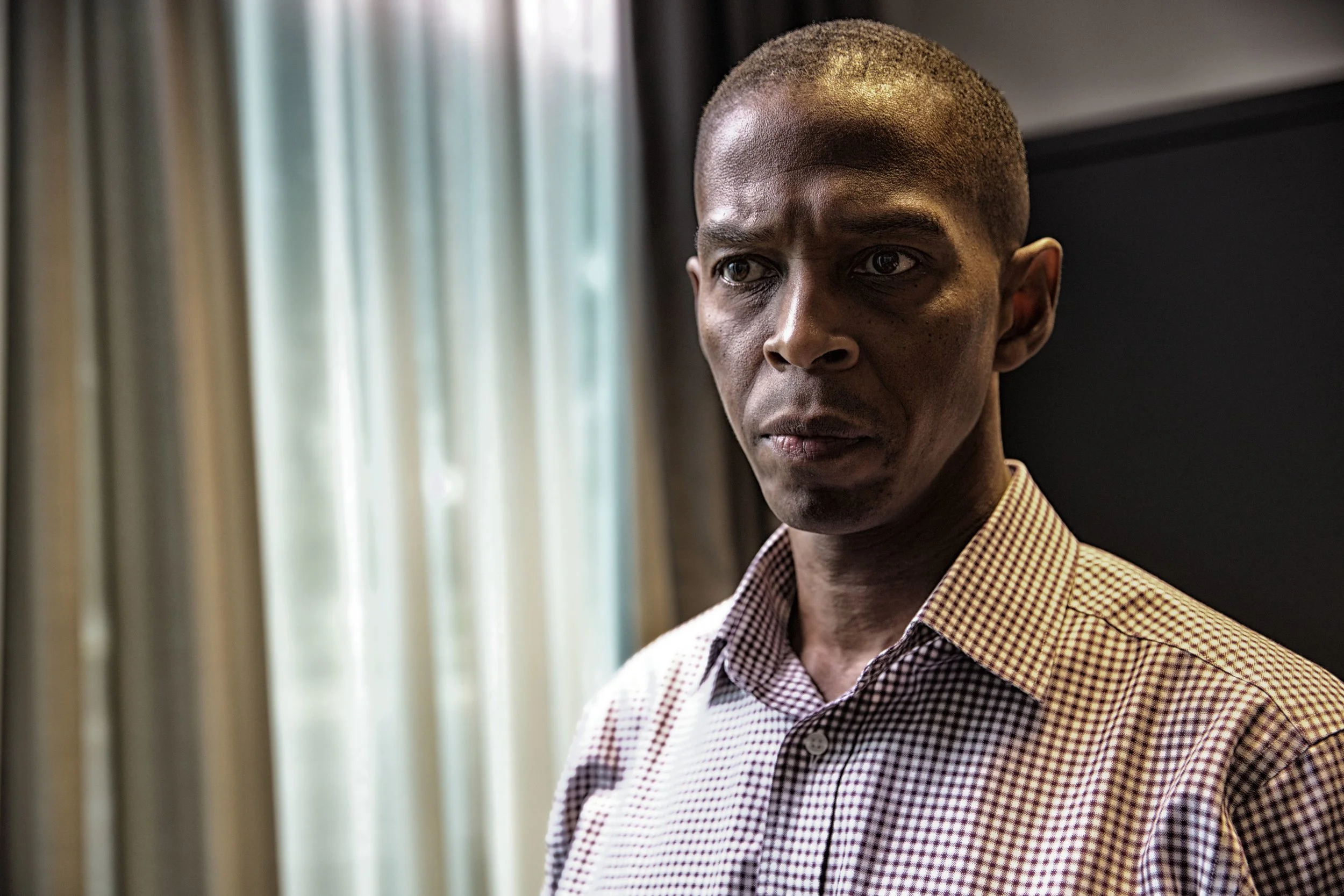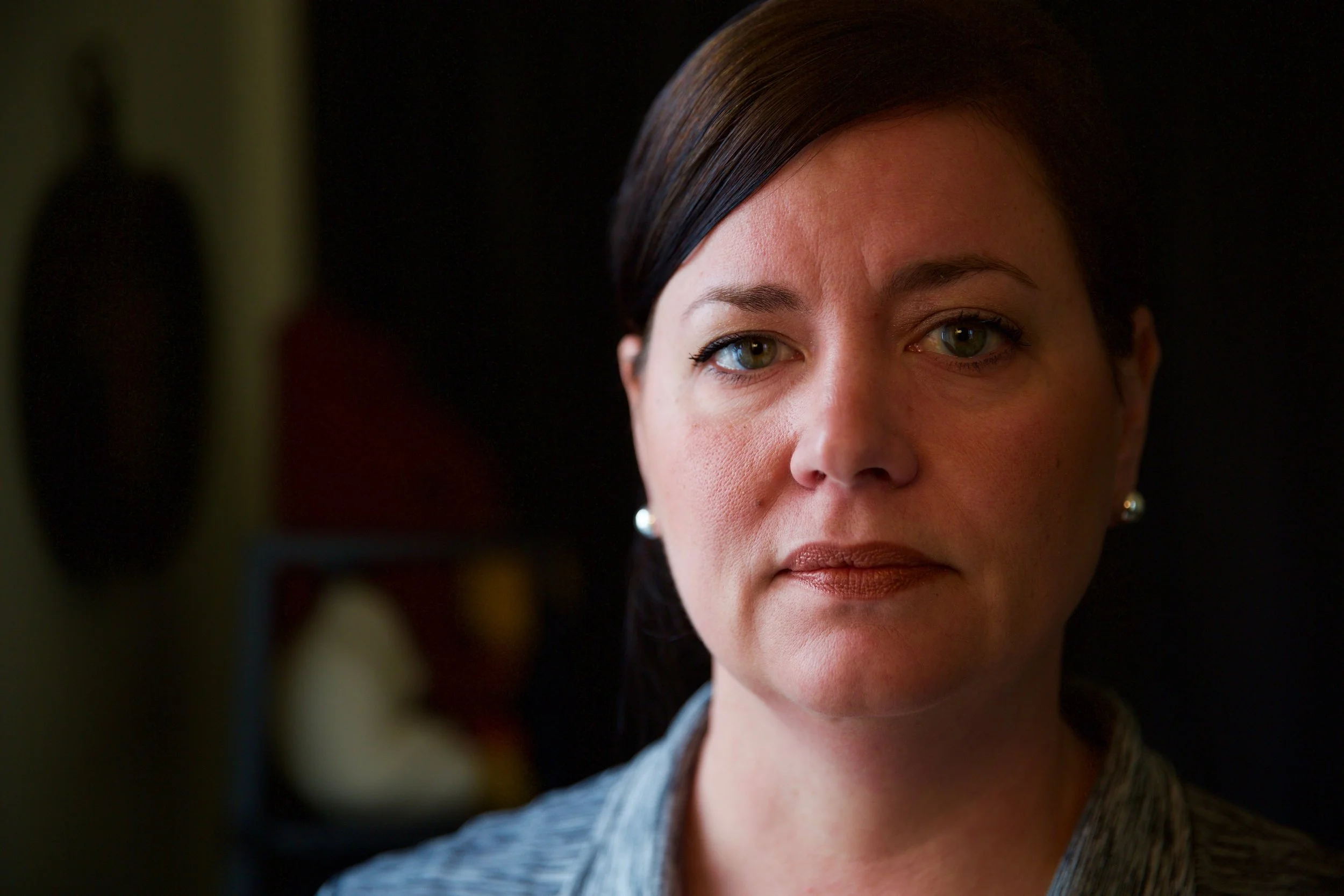Richmond Justice
STORIES + PORTRAITS
Fran | February 26, 2016
Fran Bolin is the Executive Director of Assisting Families of Inmates (AFOI). She earned her Master’s degree in Social Work at Virginia Commonwealth University, and worked as a local probation officer in Chesterfield before joining AFOI in 2001. AFOI works to support and connect families to their loved ones during incarceration and reentry. The organization provides families with transportation to 22 correctional facilities, while also expanding video visitation opportunities to include more prisons and video visitation centers throughout Virginia.
I first noticed the importance of family involvement in my work as a probation officer. Given my social work background, I thought it was important to look holistically at a person’s situation. How, I wondered, can we prevent people from entering the justice system in the first place?
When I joined AFOI, I saw the wide-ranging effects of incarceration on families and the struggles that they endure. The families are often judged right along with the offender. But so often, these families are made up of wonderful people who are hurting very badly. They’re hurting emotionally. They may also be hurting financially; they may have lost the primary source of income for the family. The children are hurting because of something they had no control over.
“The families are often judged right along with the offender.”
AFOI was founded because Virginia's prisons are built in far-flung, rural areas not served by public transportation. Most offenders come from Northern Virginia, Richmond, and Tidewater. And some of the state’s biggest prison facilities are in Southwest Virginia, close to Tennessee. How are working families, with little time, little money, and limited access to resources, supposed to get there?
We have buses traveling to correctional centers three weekends every month. Travel days are physically and emotionally exhausting. One bus leaves at 4:30 in the morning and gets back at 7:30 at night. Volunteers from Second Presbyterian and other Richmond-area churches fix dinner for the families to share once they return.
Some family members of incarcerated men and women live as far away as New York and Florida. We've seen them travel to Richmond and then board our buses for the remainder of the trip. We had a woman in her 70s come from Florida to see her son, who is ill and in his 50s. That’s a faithfulness and level of dedication and support that I don’t know if I would be able to maintain if I were in her situation.
Nothing can replace a contact visit. You’ve got to get that hug in. But we’re putting a lot of effort into video visitation, because it’s a great way of augmenting the in-person visits, especially considering the costs of fuel, food, missing work, and hotel lodging. It’s an opportunity to see your loved one and get peace of mind week-to-week that they’re okay. The first video visitation we did at AFOI was with a family who hadn’t seen their loved one in eight years. Babies had been born, people had passed away. The minute the image came up on the screen, everyone was so moved—we all cried.
I’ve become very used to rejection in this job. Some people, including potential funders, believe that offenders created a situation where they deserve to be cut off for a period of time and not have family visits. But research shows that inmates who have a supportive family and maintain that connection have a lower incidence of recidivism. So there are great cost benefits to society when we can prevent someone from going back into the system. You’re seeing more and more family integration and involvement in every part of the judicial process.
There are nearly 30,000 inmates in state-managed jails and prisons, and 95% of them are going to come home and live and work in our community—they will be our neighbors. The family connections are so important. So what we ask is, what do those families need? What’s going to make them more whole?
—interviewed January 20, 2016
















